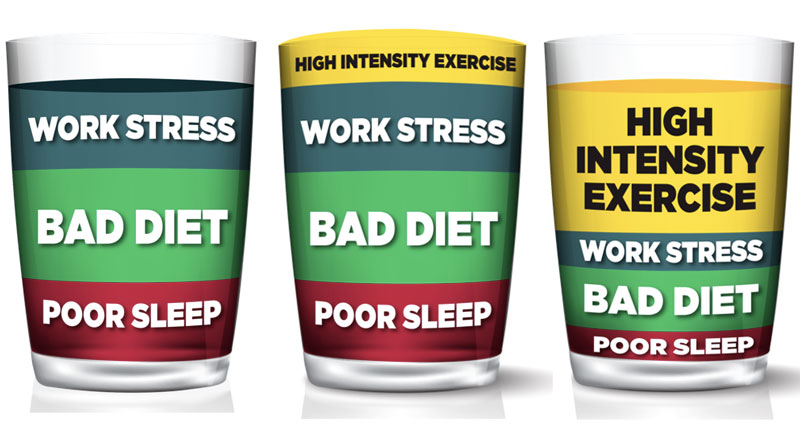Over the past couple of weeks I’ve had several people asking me something along the lines of: “How do you balance stress from workouts with stress from life? How do you know when you’re going overboard?”
It’s a great question, but not a simple one because there are many factors in play.
I like the analogy of the “Stress Cup.” This is something I heard from Chris Hardy, covered in his great book Strong Medicine.

You can think of your whole system as having a certain stress capacity. In this way, stress is stress. Stress from work, finances, relationships, diet, environmental toxins, EMF’s or workouts, it all enters into your system.
By looking at this you can see that if your stress cup gets more full from something like being unemployed (as is happening to far too many people right now), then you will have less stress capacity for your training. You might need to ease up, perhaps even skipping some sessions altogether.
I’m reminded of the first time I ever put on a workshop (the original Super Human Training Workshop with Bud Jeffries in San Jose, California) I was under a lot of work stress. So many things to do! One night I went to my gym with the intention to train. Instead, I took a nap there.)
To give another example, if you really pushed yourself hard in the gym, you might find yourself more reactive in certain situations because the stressor could put you over your limit.
This is a good, basic mental model of stress to work from.
Of course, like all models, it is incomplete. One area where the analogy starts to breakdown is understanding that the cup itself can shrink or grow over time.
This gets to the heart of the term antifragility. As a living system, your capacity to not only handle stress, but to adapt and get better at handling stress, is part and parcel of how we live. (Or ought to at least!)
One example is the herbs known as adaptogens. They help your mind-body better to adapt. How do they do this? It is actually by stressing systems in your body out in certain ways that their capacity to handle such stressors get upregulated.
If we just think about training, it’s pretty straightforward. Training is placing stress on the body. You recover and then you come back stronger, faster, more enduring, more flexible, whatever the aim happens to be. In doing that you are building your capacity to handle more of the same kinds of stressors. As I said, pretty straightforward.
But this idea of growing and shrinking gets trickier in other examples. Let’s say you’re fighting with your significant other. This places stress on your body as your emotions go into high gear. But does this build your capacity to handle stress better? Does this make your stress cup bigger? Generally no.
One thing people do is to seek for the problem not to come up again. But this is just escape. While avoiding the situation won’t cause the stress, it doesn’t upgrade your capacity.
There are sneakier ways that this occurs. Pop a pill, Xanax and other medications for example. Functionally, what I see in people that take these is that it helps them turn off the stress response. They stay relaxed. But many become dependent on it. They not only escape the stress, but it seems like in the long term it shrinks down their stress cup.
Instead, occasionally, and typically with some reflection and reframing, you can come to make whatever caused that fight affect your psychology differently. The problem becomes no problem. In this way, your capacity to handle that sort of stressor is enhanced.
